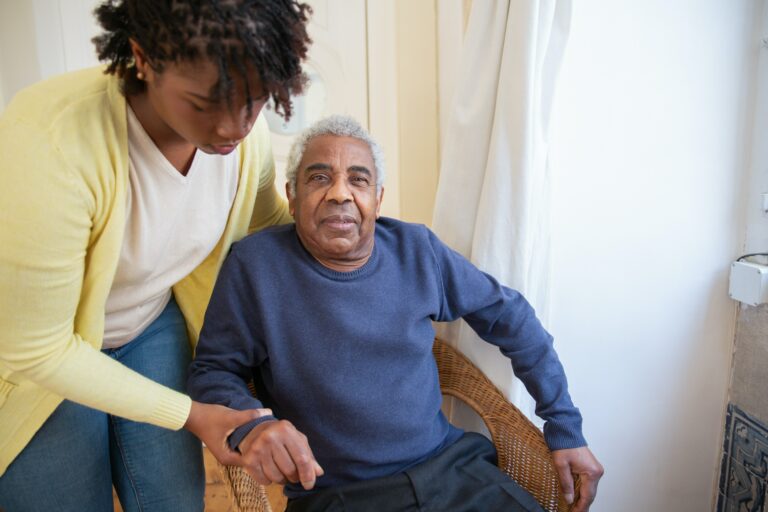
Strategies for Thriving as a Senior Living Alone
A growing number of older Americans are living independently, ushering in a “gray revolution” fueled by longer life spans, rising divorce rates and smaller or geographically dispersed families. According to The Washington Post, more than 16 million Americans aged 65 and older now live alone — the largest number ever. While this trend underscores the importance of independence and self-reliance, it also presents unique health, safety and social well-being challenges.
Consider the story of Gerri Norington, a 78-year-old woman from Chicago who has lived alone for decades following her divorce and widowhood. Though she maintains a strong relationship with her daughter, Gerri fears being a burden and relies on her resourcefulness to remain engaged in her community. Like many seniors living solo, she confronts questions about her long-term safety and how to maintain her independence.
Elder law attorneys can help support seniors living alone by addressing legal concerns, while equipping seniors and their families with proactive strategies for thriving as they age.
Challenges Faced by Seniors Living Alone
Living independently can bring a sense of empowerment. However, it also introduces risks that may compromise a senior’s ability to thrive:
- Health and Mobility Issues: Seniors living alone are at increased risk of falls, chronic illnesses and difficulty accessing healthcare, particularly in rural areas. Nearly 40% of solo seniors experience disabilities that impact daily living, according to Census data analyzed by KFF.
- Social Isolation and Mental Health: Prolonged isolation can lead to depression, anxiety and cognitive decline. Even socially active individuals, like Gerri, can feel lonely without daily companionship.
- Financial Vulnerability: Managing finances independently can be daunting, particularly for those on fixed incomes or with limited savings. Scams and financial exploitation remain pressing concerns for solo seniors.
- Emergency Preparedness: Without a nearby support system, responding to accidents or medical crises can be more challenging, exacerbating risks to well-being.
Proactive Strategies for Thriving While Living Alone
A combination of practical tools, community connections and legal planning is essential for seniors to age successfully and safely while living alone.
- Create a Safe Living Environment
- Install handrails, adequate lighting and non-slip surfaces to prevent falls.
- Consider investing in a medical alert system for emergencies.
- Evaluate whether current housing is suitable for aging in place or if modifications are necessary.
- Build a Reliable Support Network
- Stay connected with family, friends and neighbors. Regular check-ins and visits can provide emotional support and a safety net.
- Join local senior centers, community groups, or faith-based organizations to cultivate meaningful relationships.
- Leverage Technology
- Use smartphones and tablets for video calls, social media and telehealth services to bridge physical distances.
- Set up reminders for medication schedules and appointments.
- Enroll in online classes or virtual events to stay mentally engaged.
- Prioritize Physical and Mental Health
- Schedule routine check-ups and screenings.
- Engage in regular physical activity, such as walking, yoga, or swimming, to maintain mobility.
- Pursue hobbies like gardening, reading, or crafts to promote mental stimulation and emotional well-being.
- Plan for Nutrition and Home Maintenance
- Simplify meal preparation with meal delivery services or batch cooking.
- Maintain a clean and organized home with assistance from local services or volunteers when needed.
- Stay Informed About Transportation Options
- Explore senior-friendly transportation services, rideshare apps, or shuttle programs.
- If driving becomes challenging, identify reliable transportation alternatives for medical appointments and grocery shopping.
- Legal and Financial Preparedness
- Update essential documents, including wills, advance directives and powers of attorney.
- Monitor finances with budgeting tools or enlist the help of a financial advisor.
- Establish safeguards to prevent fraud, such as freezing credit and using monitoring alerts for bank accounts.
Partnering with Elder Law Attorney for Peace of Mind
An elder law attorney can be an invaluable resource for seniors living alone. By crafting a comprehensive plan, attorneys help seniors address their unique concerns and establish protections for the future.
Attorneys assist with critical legal documents, such as healthcare proxies and financial powers of attorney, ensuring that trusted individuals can act on their behalf during emergencies. They also offer guidance on long-term care planning, estate management and asset protection to safeguard independence and financial security. Take the first step toward creating a secure and fulfilling future by scheduling a consultation with our elder law team today.
Key Takeaways:
- Growing Trend: More than 16 million seniors in the U.S. now live alone, driven by longer life spans, divorce and smaller families.
- Unique Challenges: Seniors living solo face heightened risks of isolation, health complications, financial vulnerability and difficulty managing emergencies.
- Proactive Strategies Matter: Solutions like creating a safe home, building a support network, embracing technology and prioritizing health can empower seniors to age confidently.
- Legal Preparedness is Essential: Working with an elder law attorney ensures that seniors have key documents—like powers of attorney and healthcare proxies—while addressing long-term care planning and financial security.
References: The Washington Post (Sept. 24, 2024) “Historic numbers of older Americans are now living by themselves” and Senior Healthcare Team (2023) “Thriving Alone: Essential Tips for Seniors Embracing Independent Living”





